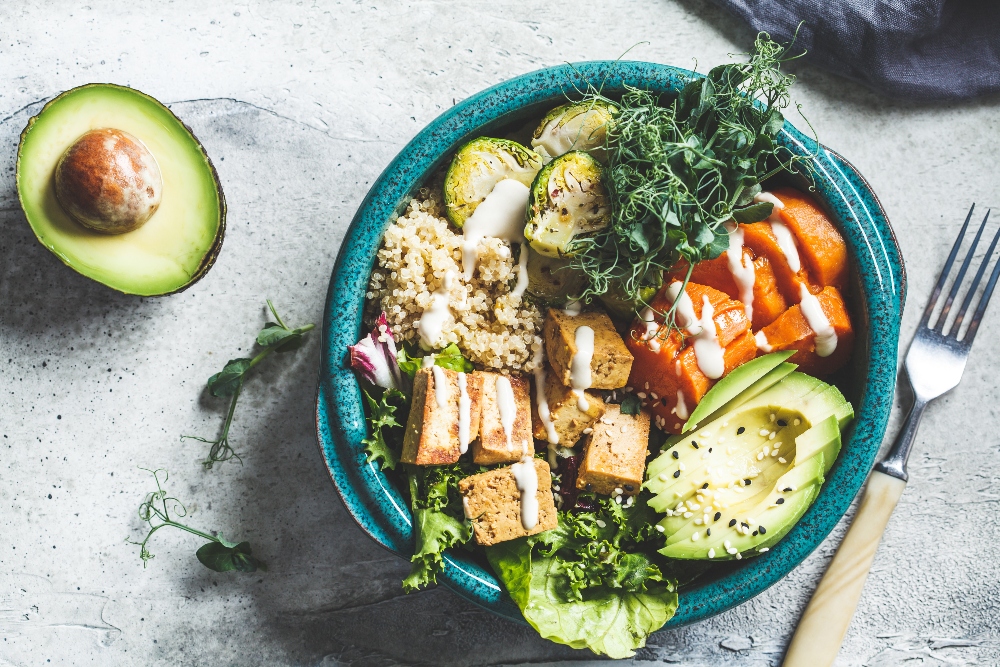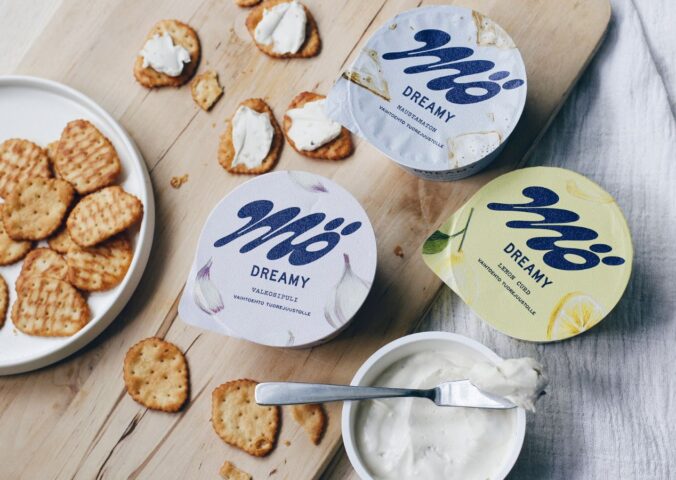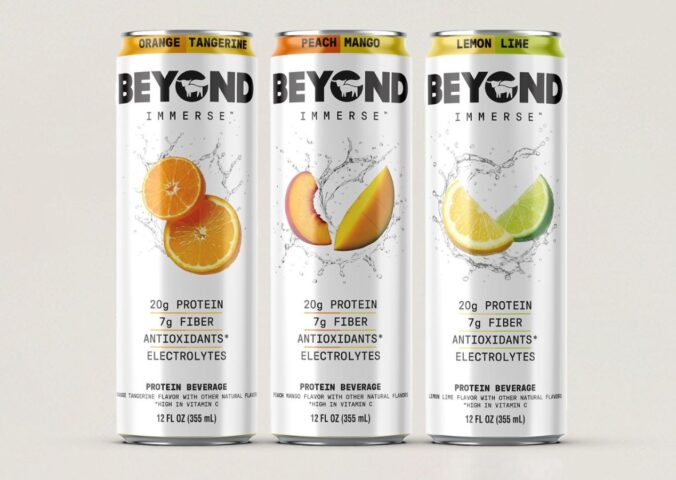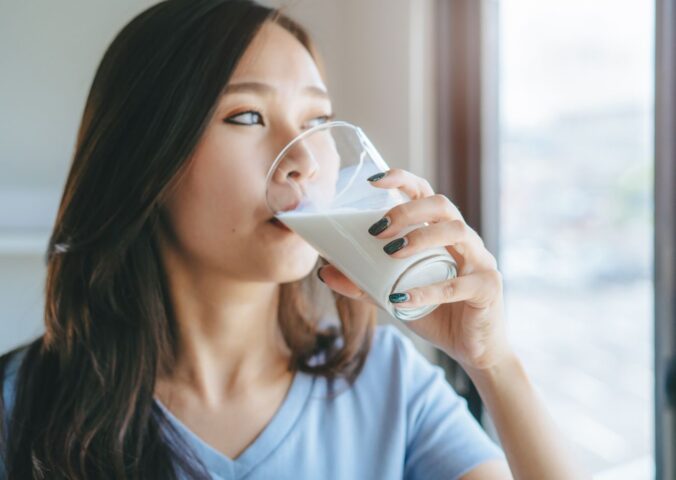A comprehensive review of studies has found no evidence that low serotonin levels cause depression. Another new study suggests vitamin B6 supplements may reduce anxiety and depression.
Research suggests that diet is a modifiable risk factor in conditions such as depression and anxiety. So how does a plant-based diet measure up?
This article discusses some of the newer studies into mental health and how it relates to a vegan diet. In addition, it explains what nutrients you need to be aware of to stay healthy, physically and mentally, and how to incorporate them into your diet.
What nutrients are essential for mental health?
A balanced diet is vital for both physical and mental health. Ensuring that you eat a wide range of essential nutrients can help to prevent inflammation and support a healthy gut-brain axis.
We need essential nutrients to synthesize neurotransmitters, prevent oxidative stress, and regulate circadian rhythms. A healthy diet can help prevent depression and cognitive decline and support sleep and stress.
The following focuses on some particular nutrients of importance and suggests ways to include them in a plant-based diet.
Tryptophan
Tryptophan is an essential amino acid found in protein foods. The body converts tryptophan to serotonin, a neurotransmitter that regulates mood, appetite, sleep, and pain.
B vitamins play an important part in tryptophan metabolism. For example, vitamin B6 helps the body convert tryptophan to serotonin. Additionally, the body can convert tryptophan to niacin, vitamin B3.
Food sources of tryptophan
Animal products such as meat, eggs, and dairy contain tryptophan. However, people eating a plant-based diet can obtain it from the following foods:
- Tofu and soy
- Seeds such as sunflower, sesame, and pumpkin
- Nuts and peanuts
- Oats
- Bread
- Bananas
Serotonin and depression
The serotonin deficiency theory of depression is the basis of doctors prescribing selective serotonin reuptake inhibitor (SSRI) antidepressants. Moreover, 85-90 percent of the public believes depression is caused by a chemical imbalance such as low serotonin.
However, a new umbrella review found no evidence that this is the case.
Co-author Dr Mark Horowitz, a training psychiatrist and Clinical Research Fellow in Psychiatry at UCL and NELFT, said in a press release, “one interesting aspect in the studies we examined was how strong an effect adverse life events played in depression, suggesting low mood is a response to people’s lives and cannot be boiled down to a simple chemical equation.”

The authors suggest further research and advice into treatments that might focus instead on managing stressful or traumatic events in people’s lives, such as psychotherapy, alongside other practices such as exercise or mindfulness, or addressing underlying contributors like poverty, stress, and loneliness.
Additionally, the researchers caution that anyone considering withdrawing from antidepressants should seek advice from a doctor as they may experience unpleasant side effects.
B vitamins
Research indicates that B vitamins are essential for good mental health and may benefit people who are stressed. B vitamins play crucial roles in serotonin and dopamine synthesis.
Additionally, B vitamins such as B12 and folate help to prevent an amino acid called homocysteine from becoming too high. Evidence suggests elevated homocysteine may contribute to depression and other psychiatric conditions by damaging brain neurons and causing cell death. It is also a risk factor for heart disease.
People eating a plant-based diet can consume B vitamins in foods such as:
- Whole grains
- Beans and lentils
- Green leafy vegetables
- Fruit
- Nuts and seeds

However, reliable sources of vitamin B12 are only found in animal products. Therefore experts such as The Vegan Society recommend that vegans take a B12 supplement of at least 10mcg daily or at least 2000mcg weekly.
Vitamin B6 supplements may reduce anxiety and depression
A new study by scientists at the University of Reading has found that high-dose vitamin B6 supplementation reduced self-reported anxiety in young adults. Participants who took 100mg of vitamin B6 for up to 35 days also tended to have fewer depressive symptoms.
The recommended daily amount for vitamin B6 is 1.4 mg for men and 1.2 mg for women, so the study amount is much higher than this. The NHS warns that taking 200 mg or more a day may lead to peripheral neuropathy, but the side effects at levels lower than this are unclear.
Vegans can consume vitamin B6 in food or take a supplement such as a multivitamin that contains the recommended daily amount. According to a 2021 study that compared different diets, vegetarians have similar levels of B6 to meat-eaters and are not at risk of deficiency.
Antioxidants
Antioxidants are naturally occurring food compounds that fight free radicals and prevent cell damage. Eating a whole-foods plant-based diet is a sure-fire way to consume plenty of beneficial antioxidants.
Studies suggest that antioxidants may counteract the inflammation in the brain associated with depression. In addition, phytochemicals in plant foods are natural antidepressants, helping to prevent serotonin and dopamine from being broken down by enzymes, thus improving mood.
Other research suggests that diets high in plant foods, such as the Mediterranean and traditional Japanese and Indian diets, are associated with a lower risk of depression.

A database published in the Nutrition Journal details the antioxidant content of foods used worldwide. The following foods are high in antioxidants and can be included as part of a healthy plant-based diet:
- Vegetables such as kale, broccoli, spinach, artichokes, peppers, sweet potatoes, and carrots
- Legumes, beans, and pulses
- Nuts and seeds
- Coffee and dark chocolate
- Green and black tea
- Wholemeal bread, buckwheat, millet, and barley
- Fruit, particularly berries
- Fresh and dried herbs and spices
- Tomato sauces
Omega-3 fatty acids
Evidence suggests that omega-3 fatty acids are decreased in people with depression. Reduced concentration of omega-3 fatty acids can alter the brain, causing changes in neuron size, learning, and memory. Omega-3 plays a part in serotonin and dopamine transmission and helps to reduce inflammation in the brain.
However, contrary to popular belief, you don’t have to eat fish to get your required amount of omega-3.
Foods such as walnuts, hemp, and flaxseed contain alpha-linolenic acid (ALA). The body converts ALA to eicosapentaenoic acid (EPA) and docosahexaenoic acid (DHA).
EPA and DHA are omega-3 fatty acids that are important for brain health. Because the conversion from ALA to DHA and EPA is often not optimal, vegans may wish to take an omega-3 supplement. Vegan omega-3 supplements are made from algae, so no fish are harmed.
Probiotics and prebiotics
Serotonin is essential for brain function and is sometimes referred to as the happy chemical.
Ninety-five percent of serotonin is produced in the gut. The beneficial bacteria in our digestive tract manufacture serotonin and communicate with the brain via the gut-brain axis.
Probiotics and prebiotics help to populate the gut with beneficial bacteria. As well as being important for our physical health, this helps to ensure good mental health.
People eating a plant-based diet consume prebiotics by eating whole foods containing fiber, such as fruits, vegetables, and legumes. The prebiotics in plant-based foods helps to feed the good bacteria and keep our bodies and minds functioning optimally.

Additionally, several plant-based foods contain probiotics. These include fermented foods such as:
- Sauerkraut
- Tempeh
- Kefir
- Miso
- Plant-based yogurt with probiotic cultures
People can also take a probiotic supplement containing up to billions of beneficial bacteria. Probiotic supplements contain different strains of beneficial bacteria, so it’s advised to research which one is most suitable, or speak to a nutritionist.
Are vegans more at risk of depression?
Some studies suggest that people have a preconception that plant-based diets lead to nutritional deficiencies and may be harmful to health.
However, experts such as the American Dietetic Association confirm that well-planned vegan diets are healthy and nutritionally adequate, and may help to prevent diseases.
A 2022 review aimed to determine if vegans are more at risk of depression by analysing 23 studies. Eleven studies associated vegan and vegetarian diets with higher rates of depression, but seven studies found beneficial effects of plant-based diets.
The authors suggest that a lack of vitamin B12 and omega-3 may increase the risk of depression. Still, the higher content of antioxidant-rich foods can counteract inflammation in the brain associated with depression.
Summary
To support brain health and avoid the risk of conditions such as anxiety and depression, people eating a plant-based diet need to:
- Ensure they get all the essential nutrients they require by eating a varied whole food diet
- Consider taking a supplement, particularly for nutrients such as vitamin B12 and omega-3
- Support gut health by including probiotic foods or supplements
- Avoid too many processed foods and sugar, as these can cause inflammation
Additionally, exercise, mindfulness, and talking therapies may be helpful. If you or someone you know is struggling, speak to a health professional to find out what support is available.
—
If you purchase something through a link on our site, Plant Based News may earn a commission. This helps us to provide our free services to millions of people each week.






